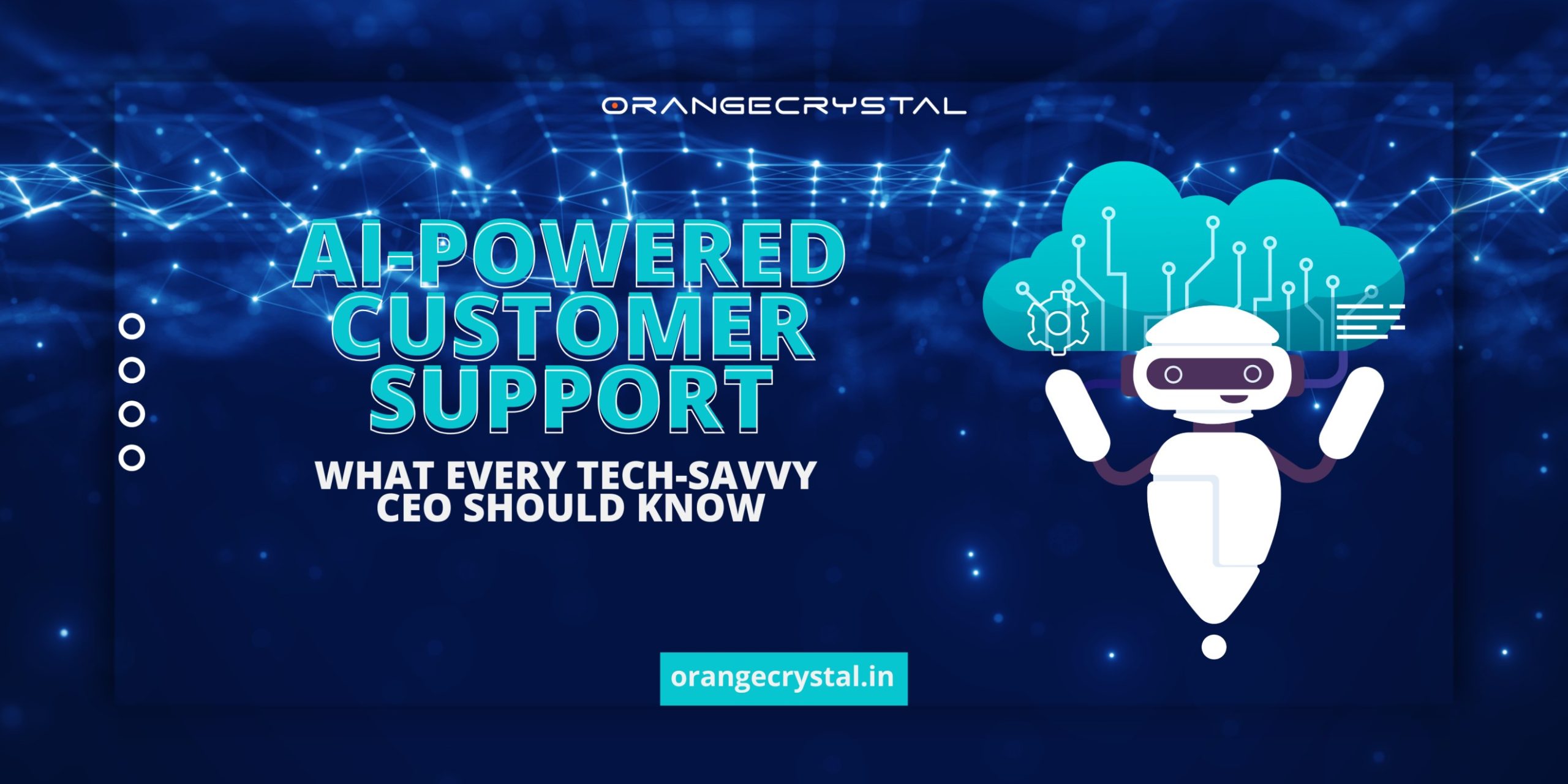What Every Tech-Savvy CEO Should Know
In the era of hyper-digitalization, customer expectations have soared to unprecedented levels. Rapid response times, 24/7 availability, omnichannel presence, and personalized support have become non-negotiable. To meet these evolving demands, many organizations are turning to AI-powered customer support solutions as a way to scale operations, reduce overhead, and maintain service excellence.
But before diving headfirst into automation, CEOs and decision-makers must understand what AI can (and can’t) do for their customer support infrastructure. This article breaks down the core considerations that should guide strategic investments in AI-powered support systems, with a focus on technical capabilities, organizational alignment, and long-term ROI.
Understanding AI in Customer Support: Beyond the Hype
AI in customer support goes far beyond simple chatbot interactions. Modern AI systems are capable of:
- Natural Language Processing (NLP): Parsing and understanding human queries across various languages, dialects, and communication styles.
- Contextual Decision-Making: Leveraging historical ticket data, CRM integration, and intent analysis to make informed decisions.
- Process Automation: Automatically escalating, routing, or resolving queries based on business rules and AI-driven classification.
- Sentiment Analysis: Detecting customer emotion and tone to prioritize tickets or trigger human intervention.
- Knowledge Management Integration: Surfacing relevant documentation or help articles in real-time using semantic search models.
However, AI is not a silver bullet. It requires a thoughtful implementation plan, adequate data training, and continuous monitoring to yield optimal results.
Key Benefits CEOs Should Expect
Investing in AI for customer support can offer tangible outcomes:
- Operational Efficiency: Automating L1/L2 queries reduces the load on human agents, enabling faster response times and lower cost per ticket.
- Scalability: AI agents can handle thousands of simultaneous queries without additional headcount, especially beneficial during seasonal spikes.
- Consistency and Compliance: Unlike human agents, AI follows scripts and compliance protocols with 100% consistency.
- 24/7 Availability: AI never sleeps—ensuring global customers are supported across time zones.
These benefits, however, are highly dependent on the quality of the implementation and the maturity of your existing support operations.
Strategic Considerations Before Investing
1. Assessing Your Support Use Cases
Not every customer interaction is suitable for automation. Use AI where:
- Query types are repetitive (password resets, order tracking, policy clarifications).
- Workflow logic is well-defined and documented.
- Your knowledge base is comprehensive and machine-readable.
Avoid using AI for edge-case scenarios, emotionally sensitive issues, or high-stakes queries without human oversight.
2. Data Readiness and Integration
AI thrives on data. Ensure your organization has:
- A clean and structured historical support dataset for model training.
- Unified access to CRMs, ticketing systems, product documentation, and transaction logs.
- Proper data labeling and tagging to enhance NLP model accuracy.
Without these, your AI initiative may falter due to lack of context or incorrect decision-making.
3. Human-in-the-Loop Design
AI should augment, not replace, your human agents. A robust system will include:
- Escalation protocols when confidence scores drop below a threshold.
- Agent-assist tools where AI recommends actions but a human executes them.
- Continuous feedback loops where human input is used to retrain models over time.
This hybrid model ensures that customers receive the benefits of automation without sacrificing service quality.
4. Security and Compliance
AI systems process sensitive customer data, and therefore must comply with:
- GDPR, CCPA, or regional data protection laws.
- Internal policies for data retention, encryption, and access controls.
- Industry-specific regulations (e.g., HIPAA for healthcare, PCI DSS for finance).
Opt for vendors and platforms with robust security postures and transparent audit trails.
5. Vendor Evaluation and Ecosystem Compatibility
When choosing an AI vendor, assess:
- Compatibility with your existing tech stack (e.g., Salesforce, Zendesk, ServiceNow).
- Support for RESTful APIs and webhook integrations.
- Availability of customization (model fine-tuning, workflow logic, UI/UX elements).
- SLA guarantees and post-deployment support.
Avoid black-box solutions that lack transparency or flexibility.
The Role of IT in a Successful Rollout
While the decision to invest often lies with the executive team, IT leaders play a critical role in making AI-powered support systems successful. Their responsibilities typically include:
- Infrastructure provisioning (cloud/on-premise/hybrid hosting).
- API integration and workflow orchestration.
- Data pipeline creation and sanitization.
- Security policy enforcement and incident response planning.
- Monitoring performance metrics (latency, accuracy, deflection rate).
A siloed approach often results in fragile implementations. Cross-functional collaboration between IT, support, and CX teams is essential.
Metrics That Matter
To track the effectiveness of AI-powered support systems, monitor:
- First Contact Resolution (FCR) rate for AI-handled queries.
- Average Handling Time (AHT) reduction.
- Customer Satisfaction (CSAT) scores for bot-initiated interactions.
- Containment Rate: % of queries fully resolved by AI without human intervention.
- Deflection Rate: % of queries diverted from traditional channels to AI/chatbots.
These KPIs can help validate ROI and guide iterative improvements.
Conclusion: Think Strategically, Build Iteratively
AI in customer support is not about replacing people—it’s about building intelligent systems that make human agents more efficient and customers more satisfied. However, premature or poorly planned automation can do more harm than good, leading to frustrated users, sunk costs, and eroded trust.
For CEOs and IT leaders, the goal should be to design AI-powered support as a strategic enabler, not just a cost-cutting measure. Start small, measure impact, gather feedback, and scale wisely.
Need help planning or deploying an AI-powered support system that aligns with your business objectives? Contact OrangeCrystal Infotech today for expert IT support and consultation.



Leave a Reply